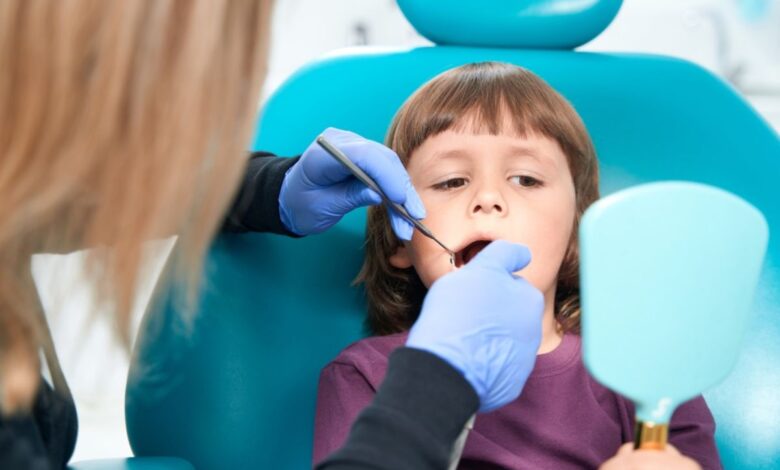
When parents think about their child’s health, they often focus on things like nutrition, sleep, or developmental milestones. But one critical aspect that’s often overlooked is dental health — especially when it comes to baby teeth.
It’s easy to think of them as “just temporary,” but the truth is: those tiny teeth do more than you might expect. In this article, we’ll break down why primary teeth matter, what problems to watch for, and how to set your child up for a lifetime of strong, healthy smiles.
The Unsung Importance of Baby Teeth
Baby teeth (also called primary teeth) begin erupting as early as six months and usually stick around until age 12. But during those formative years, they play several important roles:
1. Speech Development
Teeth help children form sounds correctly. Missing or decayed teeth can impact pronunciation and language acquisition.
2. Nutrition and Chewing
Chewing is the first step in digestion. A full set of baby teeth helps children eat a wider variety of healthy foods.
3. Jaw and Facial Development
Baby teeth act as placeholders, guiding permanent teeth into the right positions. Early loss can lead to crowding or misalignment issues later on.
4. Self-Esteem and Social Confidence
Even young kids notice their appearance. Decayed or missing teeth can make children self-conscious or hesitant to smile.
Common Pediatric Dental Problems to Watch For
Even with proper brushing, young kids can still be vulnerable to oral health issues. Here are a few that parents should monitor:
- Early Childhood Caries (ECC) – Also known as baby bottle tooth decay, this happens when sugary liquids (milk, juice, formula) linger in the mouth.
- Thumb-Sucking or Pacifier Habits – Persistent habits after age 3–4 can affect the alignment of teeth and jaw.
- Delayed Tooth Eruption – Some kids have slower-than-average tooth emergence, which may signal underlying health issues.
- Teeth Grinding (Bruxism) – Often stress-related, it can wear down enamel or cause jaw pain.
A regular dental visit can help spot these signs early and create a treatment or prevention plan.
How to Set Good Dental Habits Early
The best pediatric dental care begins at home. Here’s how to help your child build healthy habits from the start:
- Start brushing with the first tooth: Use a soft-bristled brush and a rice-sized smear of fluoride toothpaste.
- Avoid bedtime bottles: Especially ones with juice or milk. Water is the safest option.
- Make dental visits routine: Schedule the first visit by your child’s first birthday, then every 6 months.
- Model good habits: Brush and floss your own teeth with your child to show them it’s important (and normal).
When to See a Pediatric Dentist
If your child complains of tooth pain, avoids certain foods, or you notice discoloration, don’t wait. Pediatric dentists are trained not only in children’s oral anatomy but also in behavior management, so they can ease anxiety and build a positive dental relationship early on.
Clinics like Dr. Loren Grossman offer a welcoming and gentle environment specifically designed to reduce dental fear in kids — and help parents feel confident about their child’s care.
Final Thoughts
Baby teeth may fall out, but their impact lasts a lifetime. From speech and nutrition to confidence and alignment, they lay the groundwork for your child’s long-term oral health.